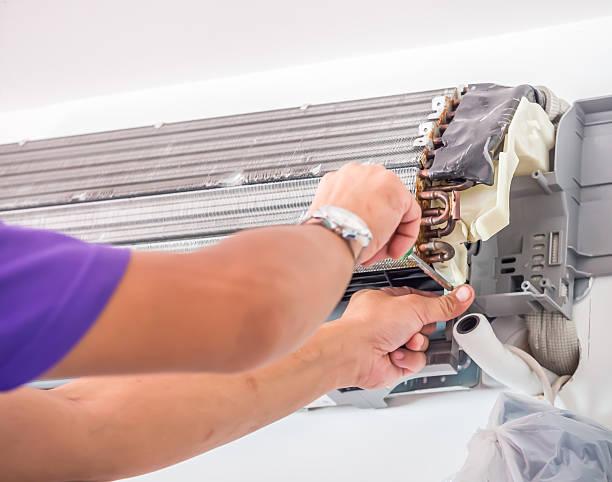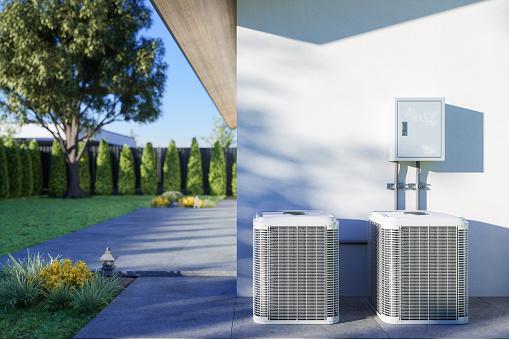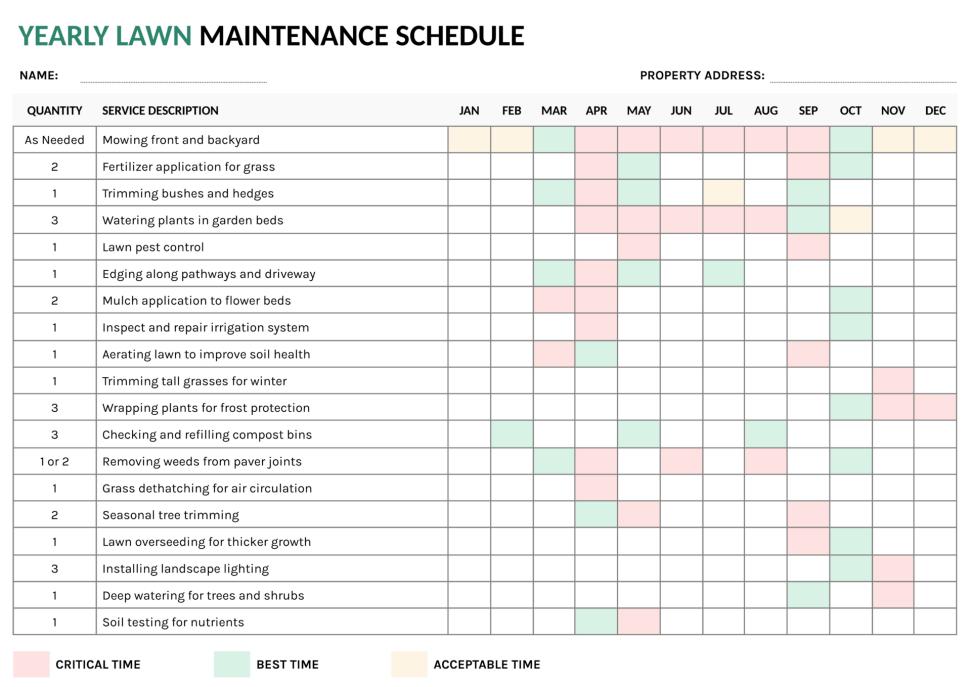When your AC system suddenly fails during a sweltering Houston summer day with temperatures soaring above 95°F, the repair bill can easily exceed $500—sometimes reaching thousands for major component failures. Yet, most of these expensive breakdowns are entirely preventable with proper maintenance. As Houston’s trusted HVAC experts at 75 Degree AC, we’ve serviced over 10,000 systems across the Greater Houston area since 2016, and we consistently see the same pattern: homeowners who follow a regular maintenance routine save an average of 30% on energy costs and extend their system’s lifespan by 5-7 years.
Houston’s unique climate challenges—with its extreme humidity levels averaging 75% year-round and aggressive temperature swings—demand more from your air conditioning system than almost anywhere else in the country. This comprehensive guide reveals the exact maintenance strategies our certified technicians recommend to keep your system running efficiently, prevent costly breakdowns, and maintain optimal indoor comfort throughout the year.
Why Houston’s Climate Demands Special AC Maintenance Attention
Houston’s subtropical climate creates a perfect storm of conditions that accelerate AC system wear. With an average of 2,700 cooling degree days annually—nearly double the national average—your air conditioner works overtime from March through November. The combination of high humidity, salt air from the Gulf Coast, and frequent temperature fluctuations creates unique maintenance challenges that generic maintenance advice simply doesn’t address.

According to the Air Conditioning Contractors of America (ACCA), Houston residents run their AC systems approximately 2,800 hours per year, compared to the national average of 1,200 hours. This intensive usage means filters clog faster, coils accumulate debris more quickly, and mechanical components experience accelerated wear. Without proper maintenance tailored to these conditions, the average Houston AC system loses 5% efficiency each year, leading to higher energy bills and premature system failure.
Expert Tip #1: Master the Art of Filter Maintenance
While changing your AC filter sounds simple, Houston’s high pollen counts and dust levels require a more strategic approach. During peak pollen season (February through May), your filters work overtime capturing allergens, requiring more frequent changes than manufacturer recommendations suggest.
Optimal Filter Change Schedule for Houston Homes
- Standard 1-inch filters: Replace every 30 days during heavy use months (May-September)
- Pleated 2-4 inch filters: Replace every 60-90 days, inspect monthly
- HEPA filters: Replace every 6 months, but check manufacturer specifications
- Homes with pets: Reduce all intervals by 30%
Pro tip from our lead technician: “Mark your filter with the installation date using a permanent marker. This simple habit helps track actual usage patterns and optimize your replacement schedule based on real conditions, not generic recommendations.”
Expert Tip #2: Coil Cleaning That Actually Works
Your AC’s evaporator and condenser coils are ground zero for efficiency loss. In Houston’s humid environment, these coils become breeding grounds for mold and algae, reducing heat transfer efficiency by up to 40%. Our technicians regularly service systems where neglected coils have caused complete system shutdowns.
For safe and effective coil cleaning, turn off power to your system at both the thermostat and circuit breaker. Use a soft brush to gently remove debris from condenser coil fins, working from inside out. Apply a no-rinse coil cleaner following manufacturer directions, allowing it to foam and self-rinse with condensation. Never use a pressure washer, as this can damage delicate aluminum fins and void your warranty.

Expert Tip #3: Optimize Your Thermostat Settings for Houston’s Humidity
Houston’s humidity levels require a different approach to thermostat management than drier climates. The Department of Energy recommends setting your thermostat to 78°F when home, but in Houston, this temperature combined with high humidity can feel uncomfortable. The solution lies in understanding the relationship between temperature and humidity control.
Recommended Houston Thermostat Settings
| Time of Day | Temperature Setting | Humidity Target | Energy Savings |
|---|---|---|---|
| Day (Home) | 76-78°F | 45-50% | Baseline |
| Day (Away) | 82-85°F | 55-60% | 10-15% |
| Night (Sleeping) | 74-76°F | 45-50% | 5-8% |
| Vacation Mode | 85°F | 60% | 20-25% |
Installing a programmable or smart thermostat can automate these settings, saving Houston homeowners an average of $180 annually on cooling costs, according to Energy Star data.
Expert Tip #4: Drainage System Maintenance Prevents Costly Water Damage
Houston’s high humidity means your AC removes gallons of water from indoor air daily—up to 20 gallons on particularly humid days. This moisture flows through your condensate drain line, which becomes susceptible to algae growth and clogs. A blocked drain line is the number one cause of water damage claims in Houston homes, with average repair costs exceeding $2,500.
Every month during cooling season, pour one cup of white vinegar or specialized AC drain cleaner down your condensate line. Locate the access point (usually a T-shaped vent with a cap near your indoor unit) and slowly pour the solution in. This simple preventive measure eliminates algae buildup and prevents catastrophic water damage. For professional AC maintenance in Houston, our technicians include comprehensive drain line cleaning and inspection.
Expert Tip #5: Ensure Proper Airflow Around Your Outdoor Unit
Your outdoor condenser unit needs adequate breathing room to function efficiently. Houston’s rapid vegetation growth—particularly during our extended growing season—can quickly overwhelm your unit. Restricted airflow forces your system to work harder, increasing energy consumption by up to 25% and accelerating component wear.
Maintain a minimum two-foot clearance around all sides of your outdoor unit. Trim shrubs, remove grass clippings, and clear fallen leaves regularly. During Houston’s oak pollen season (March-April), check your unit weekly, as pollen accumulation on condenser fins acts like insulation, preventing proper heat dissipation.

Expert Tip #6: Monitor and Maintain Proper Refrigerant Levels
Refrigerant doesn’t get “used up”—if your system is low, you have a leak. Operating with insufficient refrigerant causes your compressor to overwork, potentially leading to complete failure. In Houston’s extreme heat, a struggling compressor can fail within weeks, resulting in replacement costs ranging from $1,500 to $2,500.
Watch for these warning signs of refrigerant issues:
- Ice formation on refrigerant lines or evaporator coil
- Hissing or bubbling sounds from the indoor unit
- Warm air from vents despite system running continuously
- Unusually high electric bills (20%+ increase)
- System running constantly without reaching set temperature
“Refrigerant leaks account for nearly 30% of our emergency service calls during Houston summers,” notes James Martinez, Senior HVAC Technician at 75 Degree AC. “Annual professional inspections catch these leaks early, preventing compressor damage and maintaining system efficiency.”
Expert Tip #7: Inspect and Seal Your Ductwork
The Environmental Protection Agency reports that typical Houston homes lose 20-30% of conditioned air through duct leaks, costing homeowners $200-400 annually in wasted energy. Houston’s extreme temperature differentials between conditioned and unconditioned spaces make duct leaks particularly costly.
Perform this simple duct inspection: With your system running, feel along accessible ductwork for air leaks. Pay special attention to connections, joints, and areas where ducts pass through walls. Small leaks can be sealed with mastic sealant or metal tape (never use standard duct tape—despite its name, it fails quickly in HVAC applications). For comprehensive duct sealing, consider our professional air duct services.
Expert Tip #8: Protect Your System During Houston’s Storm Season
Houston’s hurricane season (June through November) poses unique risks to AC systems. Flying debris can damage condenser coils, flooding can destroy electrical components, and power surges during storms can fry circuit boards. Proper preparation protects your investment and ensures quick recovery after storms.
Storm Preparation Checklist
- Install a whole-home surge protector (protects all appliances, not just AC)
- Secure or remove loose items within 10 feet of outdoor unit
- Document your system’s model and serial numbers for insurance claims
- Turn off your system at the breaker before evacuating
- Never cover your unit with a tarp—trapped moisture causes more damage than rain
Expert Tip #9: Schedule Professional Maintenance at Strategic Times
Timing your professional maintenance strategically ensures optimal performance when you need it most. Houston’s mild winters (December through February) offer the ideal window for comprehensive system inspection and repairs, avoiding the rush of emergency calls during summer peak season.

Schedule your annual professional maintenance in late February or early March, just before cooling season begins. This timing ensures your system operates at peak efficiency during Houston’s brutal summer months while avoiding the 2-3 week wait times common during emergency season. For year-round protection, consider our comprehensive maintenance plans that include priority service and discounted repairs.
Expert Tip #10: Know When DIY Ends and Professional Help Begins
While regular homeowner maintenance is crucial, certain tasks require professional expertise and specialized equipment. Attempting complex repairs without proper training risks personal injury, system damage, and warranty voiding. Understanding these boundaries protects both your safety and your investment.
Tasks Requiring Professional Service
| Issue | Why Professional Service is Required | Risk of DIY Attempt |
|---|---|---|
| Refrigerant handling | EPA certification required by law | Legal penalties, environmental damage |
| Electrical repairs | High voltage, specialized knowledge needed | Electrocution, fire hazard |
| Compressor issues | Complex diagnosis, specialized tools | Complete system failure |
| Evaporator coil access | Requires system disassembly | Warranty void, system damage |
The Real Cost of Neglecting AC Maintenance in Houston
Energy Star data reveals that proper maintenance reduces AC energy consumption by 15-20%, translating to $300-500 annual savings for average Houston homes. Beyond energy savings, regular maintenance extends system lifespan from the Houston average of 10-12 years to 15-18 years—a difference worth $5,000-8,000 in delayed replacement costs.
Consider this real scenario from our service records: A Memorial area homeowner skipped maintenance for three years, saving $450 in service costs. The resulting efficiency loss increased their energy bills by $1,200, and a preventable compressor failure cost $2,400. Total loss: $3,150. Regular maintenance would have prevented all of these expenses.
Creating Your Custom Houston AC Maintenance Calendar
Success in AC maintenance comes from consistency. Create a personalized maintenance calendar based on your specific system and household needs. Set smartphone reminders for filter changes, schedule professional service during off-peak months, and keep detailed records of all maintenance performed.

Frequently Asked Questions About Houston AC Maintenance
How often should I have my AC professionally serviced in Houston?
Annual professional maintenance is the minimum recommendation, but Houston’s intense usage patterns benefit from bi-annual service—once in spring before cooling season and once in fall for heating preparation. Older systems (10+ years) should receive professional attention every six months.
What’s the average cost of AC maintenance in Houston?
Professional AC maintenance in Houston typically ranges from $75-200 per visit, depending on system size and service scope. Annual maintenance agreements offer better value, averaging $150-300 yearly and including benefits like priority service and repair discounts.
Can Houston’s hard water affect my AC system?
Yes, Houston’s moderately hard water (averaging 8 grains per gallon) can create mineral deposits in humidifiers and condensate pans. Annual cleaning prevents these buildups from restricting drainage and causing water damage.
Should I cover my outdoor AC unit during winter?
No, covering your entire unit traps moisture and accelerates corrosion. Houston’s mild winters don’t require protection. If concerned about falling debris, use a piece of plywood on top only, securing it while maintaining side ventilation.
How do I know if my AC maintenance is working?
Track your energy bills month-over-month and year-over-year. Properly maintained systems show stable or declining energy usage despite rate increases. Also monitor repair frequency—well-maintained systems rarely require emergency repairs.
Take Action Today: Protect Your Investment and Comfort
Houston’s demanding climate makes proactive AC maintenance non-negotiable for homeowners serious about comfort, efficiency, and system longevity. These ten expert tips provide the foundation for a comprehensive maintenance strategy that protects your investment while ensuring reliable cooling through Houston’s toughest weather.
The difference between a well-maintained AC system and a neglected one isn’t just about money—it’s about peace of mind during Houston’s scorching summers, the health of your family breathing clean air, and the confidence that your system won’t fail when you need it most.
Don’t wait for a breakdown to prioritize your AC maintenance. Contact 75 Degree AC today at (713) 598-2737 to schedule your professional maintenance service. Our certified technicians bring years of Houston-specific experience, ensuring your system receives the specialized care it needs. Ask about our maintenance agreements that include priority service, discounted repairs, and the peace of mind that comes from knowing Houston’s most trusted HVAC professionals are protecting your comfort year-round.
